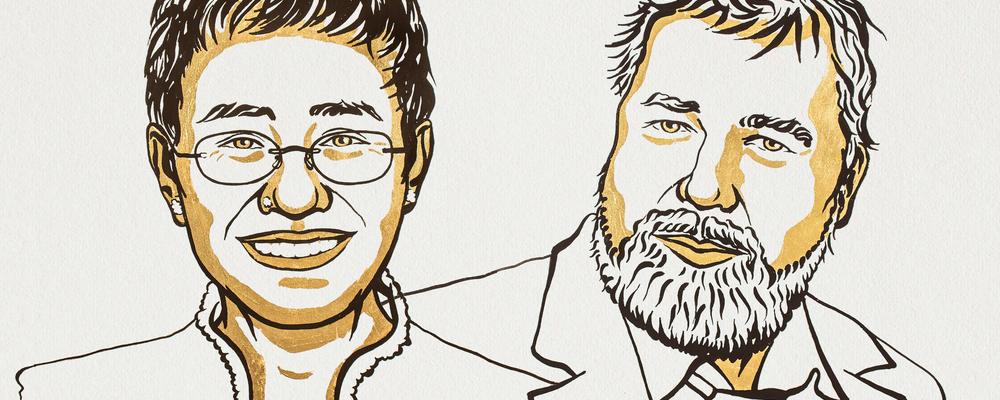Dmitry Muratov is the editor-in-chief of the Russian independent newspaper Novaya Gazeta, where Anna Politkovskaya worked when she was assassinated in 2006. Maria Ressa is the founder of the news site Rappler and one of the sharpest critics of Philippine President Rordrigo Duerte.
According to Johan Karlsson Schaffer, the award brings attention to press freedom issues at a time when threats to free journalism are increasing.
“In most parts of the world, media freedom has declined in recent years. Journalists, editors and media owners are threatened, harassed, attacked and killed – often without anyone being held accountable, and governments are often among the worst perpetrators,” he says.
The media sector is also controlled more indirectly, for example, through restrictions on freedom of expression in law, or that independent media lose advertising revenue or grants from government agencies and companies, or that licenses and accreditations are only awarded to media and journalists loyal to those in power. In recent years, many governments have blocked the Internet or social media to prevent journalists from reporting and citizens from staying informed.
“But there are also many examples of how journalists, media and press freedom groups work tirelessly to curb the negative development, to challenge governments’ restrictions on press freedom and to continue their independent scrutiny of power. Muratov and Ressa are thus representatives of a global movement for the right to independent journalism,” says Johan Karlsson Schaffer.
Freedom of the press, freedom of expression and freedom of information are also important preconditions for many other rights, for democracy and the rule of law. Independent media that scrutinize power are a prerequisite for a free and open society.
“There is also research that indicates that freedom of the press reduces the risk of conflicts between states that may lead to war. In this way, this is an award well in line with Nobel’s last testament to “make humanity the greatest benefit” and “work for the brotherhood of the peoples,” says Johan Karlsson Schaffer.
